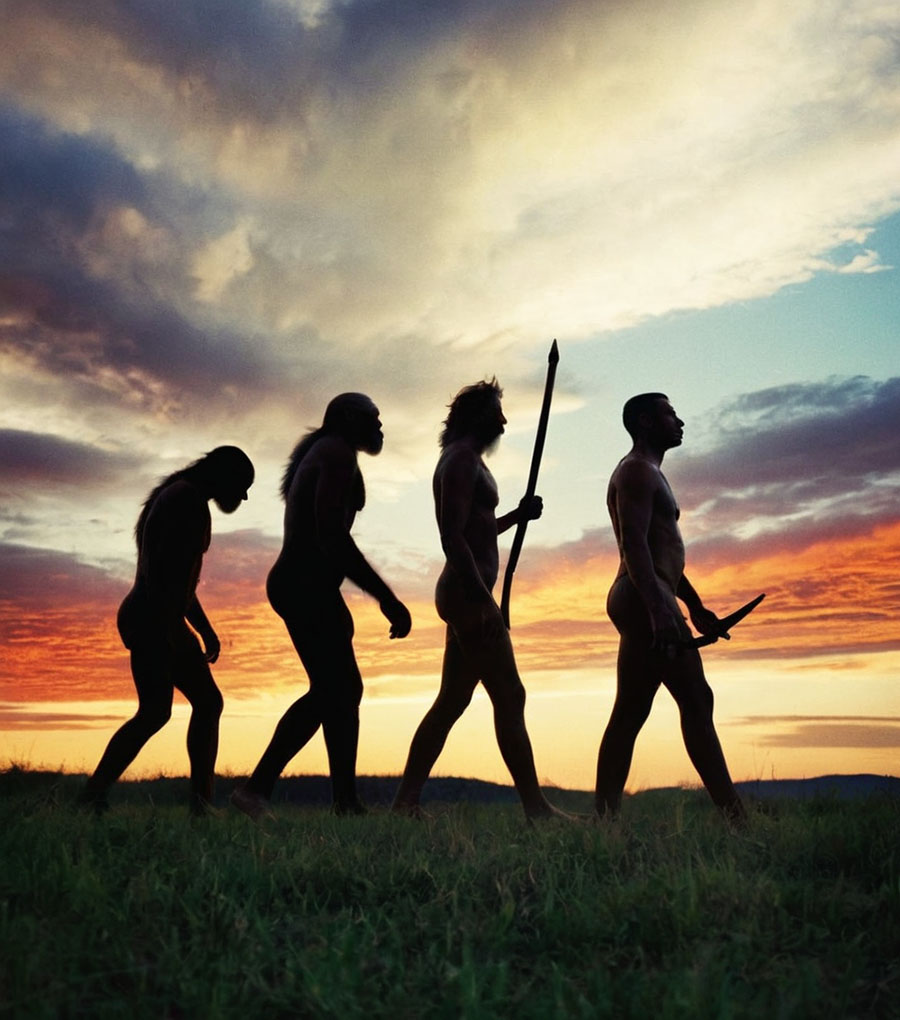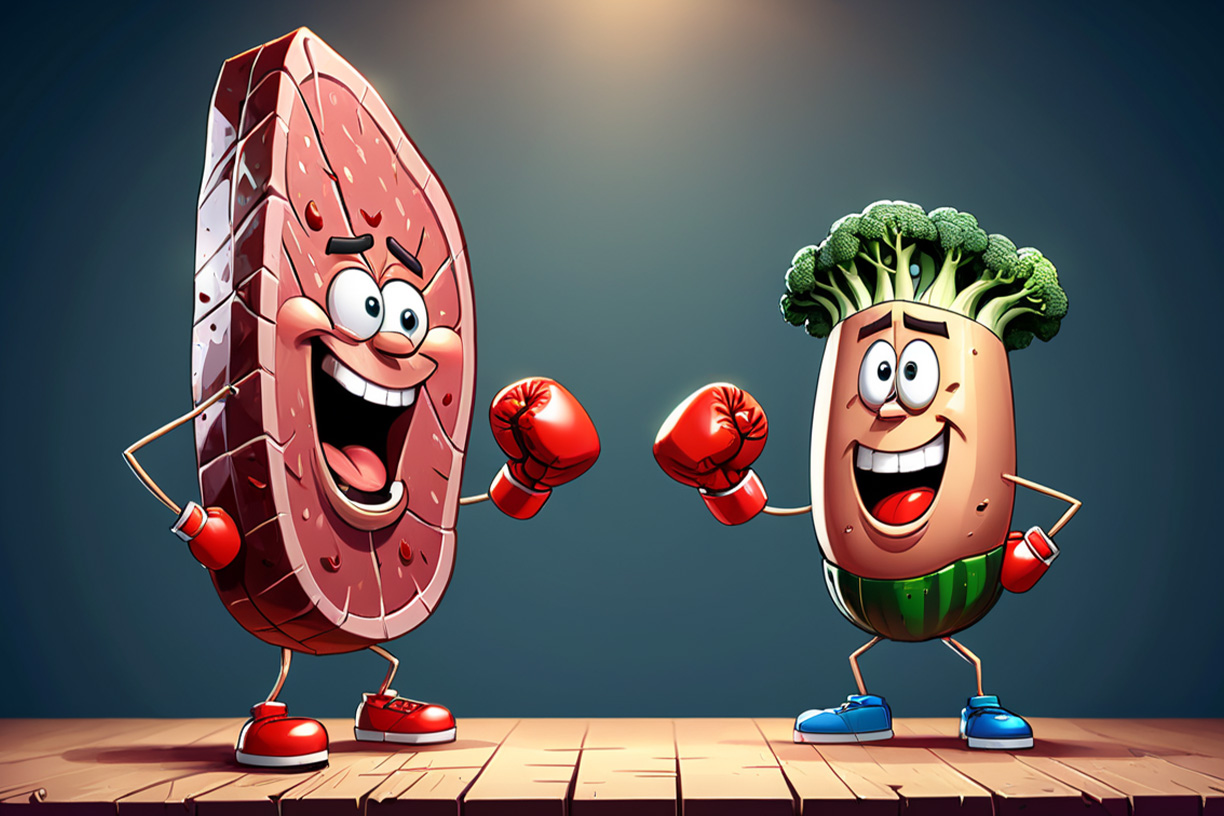In the grand theater of human history, few actors have commanded the spotlight quite like meat. From the primal fires of our ancestors to the sleek kitchens of modernity, meat has been a steadfast companion on our journey through time. But as we stand at the crossroads of culinary evolution, a tantalizing question beckons: Is meat the fuel that propels us forward, or has it become the heavy chain that anchors us in the past?
Throughout the ages, our relationship with meat has been as complex as it is primal. It fueled our ancient hunts, powered civilizations, and tantalized taste buds with its savory allure. Yet, behind the succulent steaks and sizzling bacon lies a story of evolution—a tale of adaptation, survival, and the ever-shifting landscape of human diet.
As we delve deeper into the meaty labyrinth, we confront not just questions of sustenance but also of identity and culture. Is meat a symbol of prowess and indulgence, or does it carry with it the weight of ethical and environmental consequences? Can we reconcile our primal cravings with the demands of a planet in peril?
Join us on a journey through the ages, as we dissect the evolutionary importance of meat, confront the realities of modern meat consumption, and dive headfirst into the fiery debate over its place in our future. Strap in, grab a fork, and prepare to sink your teeth into a topic as rich and contentious as the juiciest steak.

In the annals of human evolution, meat stands as a cornerstone—a protein-packed testament to our journey from tree-dwelling primates to conquerors of the savannah. Picture our ancient ancestors, armed with crude tools and primal instincts, as they stalked their prey through dense forests and open plains. Meat wasn’t just a meal; it was a lifeline—a source of energy, nutrients, and the building blocks of our burgeoning brains.
The shift to a meat-centric diet marked a pivotal moment in our evolution.
It fueled the expansion of our brains, enabling the development of complex cognitive abilities that set us apart from our herbivorous counterparts. The protein, fat, and micronutrients found in meat became the fuel for our relentless march towards technological prowess, social complexity, and dominance over the natural world.
But as we gaze back at our meaty past, we must also confront the shadows that lurk behind the roasting fires. The quest for meat drove us to innovate, to collaborate, and to conquer, but it also carried with it a heavy toll. The ecological footprint of our carnivorous appetites, the ethical dilemmas of animal consumption, and the health implications of excessive meat consumption are all chapters in the saga of our relationship with meat.
Has meat been the key that unlocked our evolutionary potential, or has it become a weighty anchor, dragging us into a future fraught with challenges?
In today’s world, meat consumption has taken on a myriad of forms, from the humble backyard barbecue to the sleek laboratories of cultured meat production. But amidst the sizzle and smoke, a simmering debate brews: Are we consuming meat responsibly, or are we careening towards a dietary reckoning?
On one hand, meat remains a symbol of indulgence, a culinary delight that tantalizes taste buds and satisfies primal cravings. From the perfectly seared steak to the crispy, golden-fried chicken, meat occupies a central place on our plates and in our hearts. But this love affair with meat comes at a cost—a cost that extends beyond the confines of our kitchens.
The environmental impact of meat production is a looming specter, casting a shadow over our carnivorous feasts. From deforestation and habitat destruction to greenhouse gas emissions and water scarcity, the toll of livestock farming on our planet is undeniable. The ethical considerations of animal welfare and the health implications of excessive meat consumption add further complexity to the meaty equation.
Yet, amidst these challenges, innovation and progress offer glimmers of hope. Plant-based alternatives, lab-grown meats, and sustainable farming practices are reshaping the meat landscape, offering alternatives that promise to satisfy our cravings without sacrificing our conscience or the health of our planet.
The food you eat can be either the safest and most powerful form of medicine or the slowest form of poison.
Ann Wigmore
Can we find a balance—a middle ground that allows us to enjoy the pleasures of meat while mitigating its environmental, ethical, and health impacts? Join us as we sizzle, simmer, and slice through the meaty conundrums of our time.
As the smoke clears and the grill marks fade, a fiery debate rages on: Should humans bid farewell to meat, or is there a middle ground that satisfies both our appetites and our conscience? On one side of the sizzling divide, we have the proponents of a plant-based revolution—a dietary paradigm shift that promises health, sustainability, and ethical integrity. On the other, the defenders of meat’s place on our plates argue for tradition, taste, and cultural significance.
The arguments for removing meat from our diets are compelling.

Advocates point to the health benefits of plant-based eating, from reduced risk of chronic diseases to improved longevity and vitality. They also highlight the environmental imperatives, citing the staggering ecological footprint of livestock farming and the urgent need for sustainable food systems. Ethical considerations, such as animal welfare and the moral implications of mass slaughter, further bolster the case for a meat-free future.
However, the defenders of meat are not without their arguments. They point to the nutritional completeness of animal proteins, essential nutrients like B12 and iron that are less abundant in plant-based diets. They also argue for the cultural and social significance of meat, from celebratory feasts to traditional cuisines that have been woven into the fabric of human history.
Amidst this clash of culinary ideologies, a nuanced conversation emerges—a dialogue that seeks not just to polarize but to find common ground. Can we imagine a future where meat plays a smaller but still significant role on our plates? Can we embrace a diet that prioritizes health, sustainability, and ethical integrity without sacrificing taste and tradition?
As we stand on the precipice of a meatless future, the ramifications of such a seismic shift are both tantalizing and daunting. What would happen if we were to bid farewell to meat and embrace a plant-centric diet? The ripple effects would span health, environment, culture, and economy, reshaping the very fabric of our existence.
Health outcomes would likely see a significant shift. Plant-based diets are associated with lower risks of chronic diseases such as heart disease, diabetes, and certain cancers. The abundance of fiber, antioxidants, and phytonutrients in plant foods can promote overall well-being and longevity. However, careful attention would be needed to ensure adequate intake of essential nutrients typically found in meat, such as protein, iron, and certain vitamins. Balancing these nutritional needs would be crucial in maintaining optimal health in a meatless diet.
From an environmental perspective, the impact could be transformative. Livestock farming is a major contributor to greenhouse gas emissions, deforestation, water pollution, and biodiversity loss. Shifting towards plant-based diets could alleviate pressure on natural resources, reduce carbon footprints, and promote ecological sustainability. However, considerations such as agricultural practices, food transportation, and land use would need to be addressed to maximize the benefits and mitigate potential challenges associated with increased demand for plant-based foods.

Culturally and socially, the removal of meat from diets could spark a renaissance of culinary creativity. Traditional plant-based cuisines from around the world would take center stage, celebrating diverse flavors, ingredients, and culinary traditions. The stigma surrounding vegetarian and vegan lifestyles may also diminish, leading to greater acceptance and inclusivity in food choices. However, cultural shifts and dietary preferences vary widely across populations, and navigating these nuances would be essential in fostering widespread adoption of meatless diets.
Economically, the impact would be multifaceted.
Industries tied to meat production and consumption would undergo transformation, with potential shifts in employment, trade patterns, and market dynamics. Investment in plant-based alternatives, sustainable agriculture, and food innovation could spur economic growth and diversification. However, there may also be challenges in transitioning existing industries and ensuring equitable opportunities for all stakeholders involved.
It’s not just about what we eat but how our choices reverberate through interconnected systems of health, environment, culture, and economy. As we weigh the pros and cons, let us envision a future where our plates reflect not just our cravings but also our values and aspirations.
The debate over meat’s role in human evolution and its impact on health and the environment will continue to evolve. Scientific research, technological advancements, and shifting societal norms will shape how we perceive and consume meat in the years to come. However, what remains constant is the need for thoughtful consideration and informed decision-making.
For individuals, the choice between including meat in their diets or opting for plant-based alternatives is deeply personal. It’s about finding a dietary pattern that aligns with individual health goals, ethical values, cultural heritage, and environmental consciousness. Flexibility, moderation, and mindfulness in food choices can lead to a balanced approach that prioritizes both personal well-being and planetary health.
On a broader scale, addressing the challenges and opportunities presented by meat consumption requires collaboration and innovation across sectors. Sustainable farming practices, advancements in alternative proteins, public health education, and policy interventions all play a role in shaping a food system that is resilient, equitable, and sustainable.
Whether we choose to savor the occasional steak or indulge in plant-based feasts, let our plates reflect not just nourishment but also compassion, stewardship, and harmony with the natural world.







